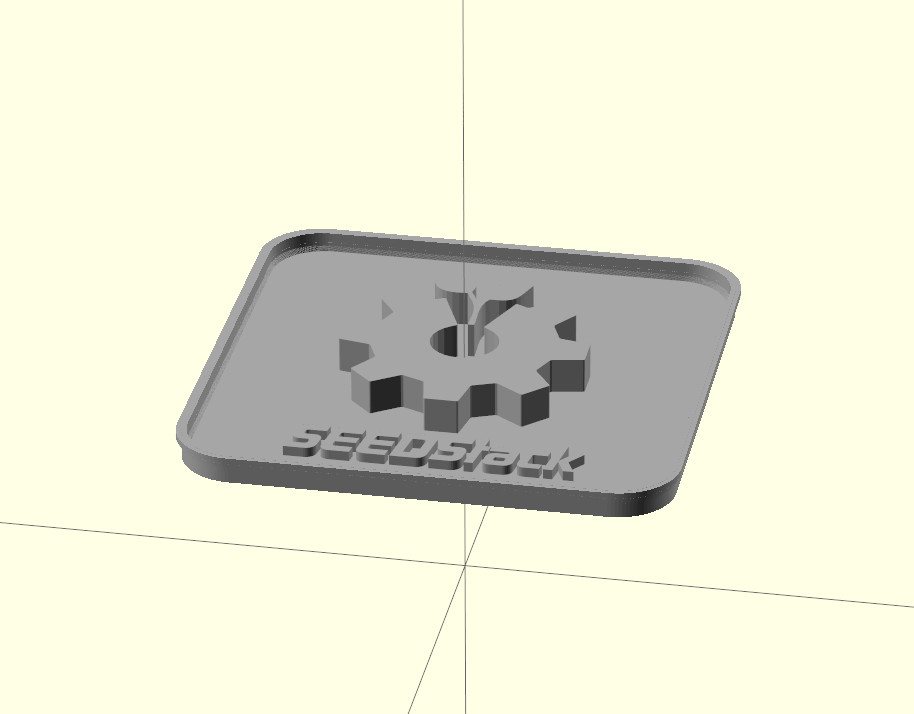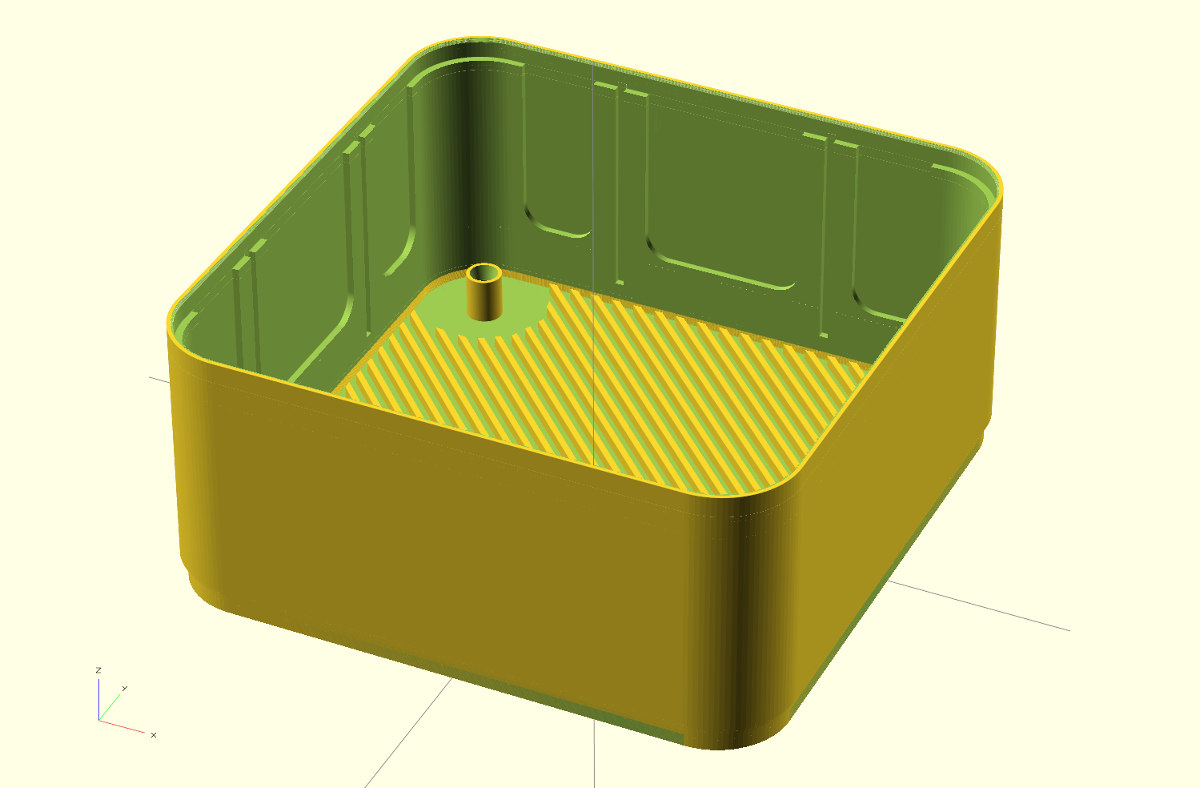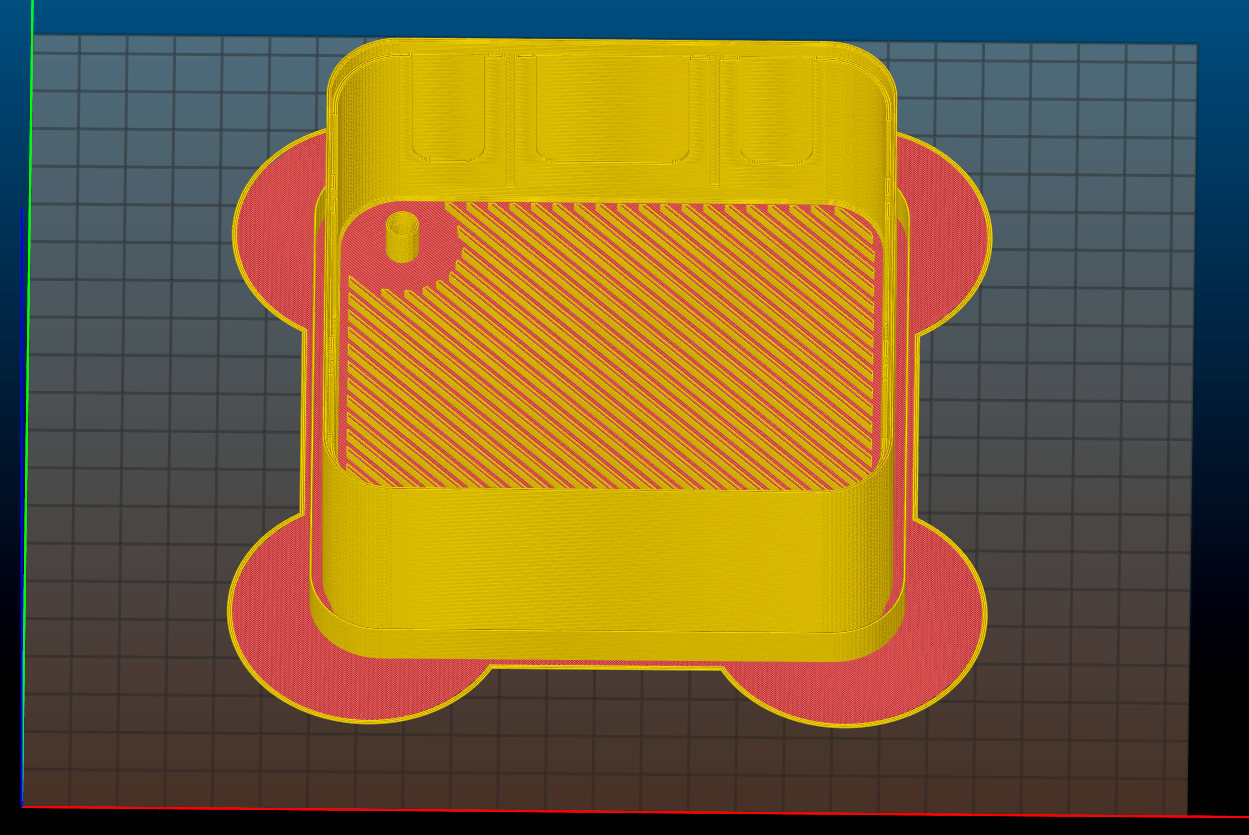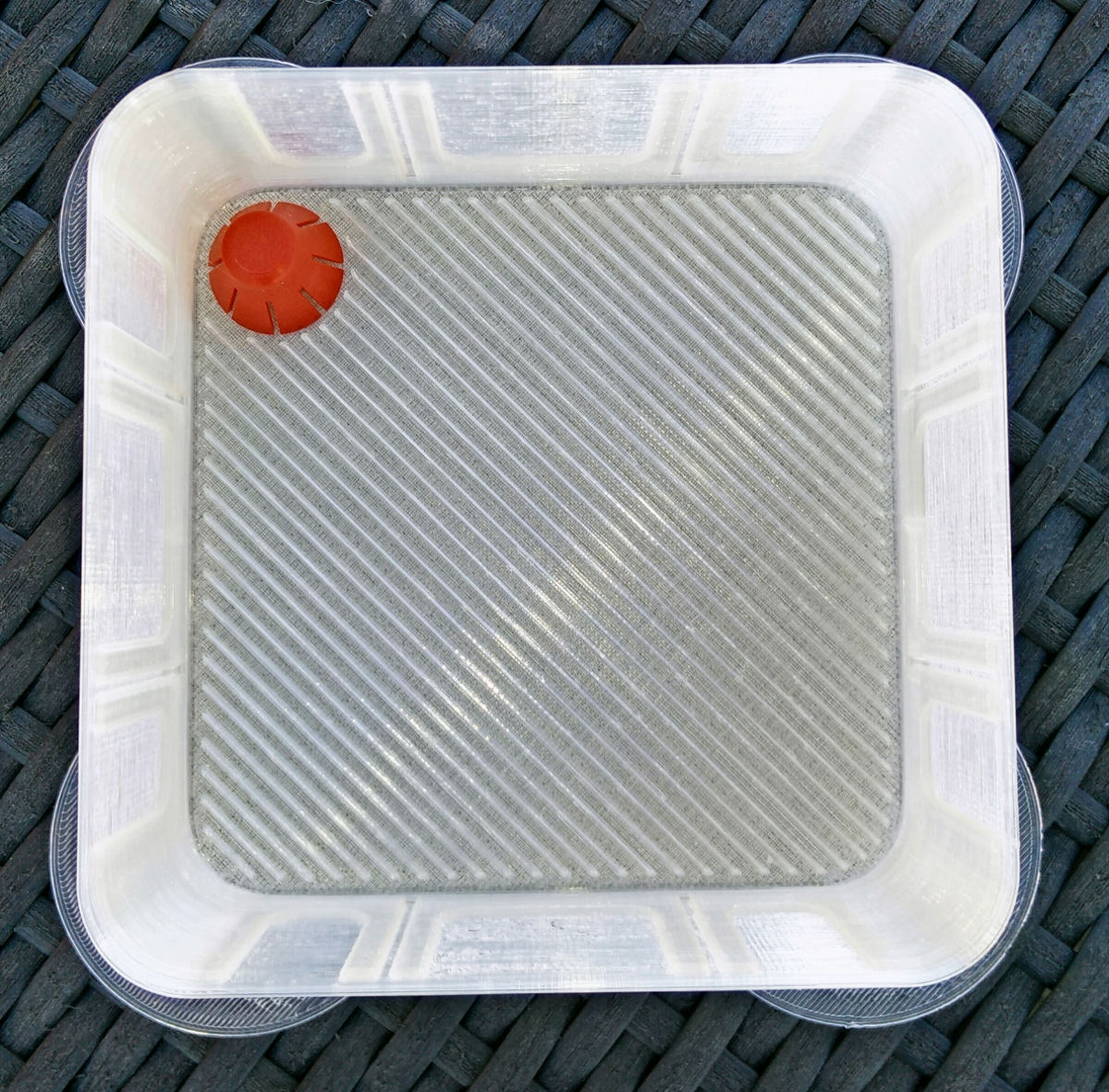Table of Contents
Parts
After looking at many historic and current commercial implementations, the best elements and ideas were adapted, mashed up and broken down into several modules in order to have the most flexible setup and easy printing.
Lid
The Lid covers the topmost container in the stack so that each container is providing a closed section of moist atmosphere to create a favorable sprouting environment. The handle in the middle is actually the CERN OHL (Open Hardware License) Logo, with an added seedling growing from it. It's just a design element depicting how we can use modern open technology, to enable us to go back to basics, like growing food, by ourselves again.
Model
Slicing & Printing
| Print Time | Z resolution | Filament | Length/Volume |
|---|---|---|---|
| ~3 hours | 200 um | PLA | 15.5 m / 37.4 cm³ |
Container
These containers are the main pieces of the set. You can start with just one. When your circumstances require more harvest volume, you can simply print more of these containers and stack them on top of each other to a tower.
Model
This design approach reduces the necessary surface area for a seedstack and scales beautifully from just one to a whole set of containers, which can contain different seeds but all get flushed and fresh water automagically via the built-in auto-draining feature.
Key Features
- Drain for automagic cleaning and flushing run
- Bottom Spacing grid, keeping the seeds always 2mm above the actual bottom of the container
- Integrated guides in all sidewalls to allow for flexible compartmentalization with one container
- Case design to be stable enough for a tight fit but very lightweight and easy to print
Slicing & Printing
Demonstrator
Checkout the following Video to see the delayed auto-drain in action. The container takes on a certain amount of water before actually starting to flush the water and then automatically drains itself completely, leaving only less than 1mm of waterlevel to keep the atmosphere moist and the seeds above on the spacing grid.
Siphon
The key feature of the auto-drain is the tube in the container and the following part which, once in place, turns the tube into a siphon. As long as the water level is not high enough to reach the end of the tube, it cannot escape the container. Once it has flown over, the falling water (gravity) creates suction in the siphon and continues to drain water from the container until the water level reaches the bottom of the inner tube of the siphon. Then it starts to pull air and the process terminates automatically. If you need different water/retain levels, you can simply change the height of the container- and siphon-tube respectively.
Model
OpenSCAD Code part
module syphon()
{
difference()
{
union()
{
// Outer Skirt
difference()
{
translate([0,0,syphon_skirt_height/2])cylinder(h=syphon_skirt_height, d1=syphon_skirt_outer_d, d2=syphon_tip_outer_d, center=true);
union()
{
translate([0,0,syphon_skirt_height/2-0.1])cylinder(h=syphon_skirt_height+0.1, d1=syphon_skirt_outer_d-2, d2=syphon_tip_outer_d-1, center=true);
for(x=[0:45:360])
{
rotate([0,0,x])translate([9,0,0])cube(size=[5,1,15],center=true);
}
translate([0,0,syphon_skirt_height/2+syphon_tip_height/2])cylinder(h=drain_h,d=syphon_tube_inner_d, center=true);
}
}
// Inner Tube
difference()
{
translate([0,0,syphon_skirt_height/2+syphon_tip_height/2])cylinder(h=syphon_skirt_height+syphon_tip_height,d=syphon_tube_outer_d, center=true);
translate([0,0,syphon_skirt_height/2+syphon_tip_height/2-1])cylinder(h=drain_h+7,d=syphon_tube_inner_d, center=true);
}
// Tube Guides
for(x=[0:120:360])
{
rotate([0,0,x])translate([4.5,0,drain_h])cylinder(h=drain_h+3,d=stg_d,center=true);
}
}
// Bottom Cuts
translate([0,0,-syphon_skirt_height/2+1.1])rotate([90,0,0])cylinder(h=syphon_skirt_height+syphon_tip_height,d=syphon_tube_inner_d, center=true);
translate([0,0,-syphon_skirt_height/2+1.1])rotate([90,0,90])cylinder(h=syphon_skirt_height+syphon_tip_height,d=syphon_tube_inner_d, center=true);
}
}
Slicing & Printing
| Print Time | Z resolution | Filament | Length/Volume |
|---|---|---|---|
| ~18 Minutes | 200 um | PLA | 0.35 m / 0.85 cm³ |
Bottom
In Progress…




